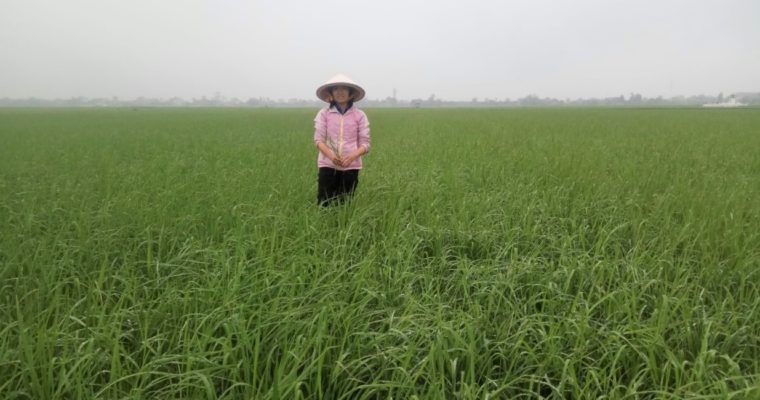This article is originally published by SEI
“The weather in Mongolia is changing,” Sonintsetseg says, looking at the floor. “It is getting colder. Summer is getting shorter, and spring and autumn are coming later. Sometimes we have heavy snow in September, and we lose all the vegetables.”
A 35-year-old farmer and single mother, Sonintsetseg left her daughter in the care of her parents in Mongolia and travelled to the Philippines for the first time to take part in a workshop on climate resilient pathways for small scale family farmers. She says her family farm is bearing the brunt of a changing climate.
“We can’t open the door at night in the greenhouses,” she said. “We can only circulate the air during the day. The weather has become unpredictable. It can be very hot during the day, but extremely cold at night.”
Sonintsetseg is a member of the Asian Farmers’ Association for Sustainable Rural Development (AFA), many of whom are small-scale, often family-run farmers who depend largely on rain-fed agriculture, cultivate small areas of land and lack access to technical and financial support that could help them invest in more climate-resilient agriculture. This makes them highly vulnerable to crop failure, increased disease and mortality of animals, forced sale of products at disadvantageous prices and unsustainable adaptation strategies that could lead to further biodiversity loss and environmental degradation.
There are about 475 million small scale farms cultivating less than two hectares of land, many of whom are poor, experience food insecurity and live in highly precarious conditions.
Family farms operate about 75% of the world’s agricultural land and while they are not the biggest emitter of greenhouse gases, their livelihoods are among the most affected and exposed to climate change.
Phonekeo Vangna, from the Lao PDR Farmer’s Network, says farmers have had to learn new ways of planting and caring for crops.
“We need to find ways to cultivate rice which reduces the amount of water in farming,” she says. “Some farmers are doing this already; reducing chemical fertilizers and using more compost made from available materials that are easy to find.”
Other farmers discussed working across the season in ways that follow unpredictable rainfall variations, making use of wild plants, working the land harder and diversifying their livelihoods.
For Sonintsetseg, this means checking the weather app on her phone up to five times a day and starting an apiary.
“We now have 36 beehives,” she says. “Every month, we move the beehive to different places where there are beautiful flowers. We collect around 400 kilograms of honey every year.”
In addition to exploring adaptation methods, the workshop also created an open space for collaboration and engagement between small holder farmers across Asia.
“Many countries are affected by climate change,” Vangna says. “During the workshop, we had a chance to hear what other countries were doing and how they adapt to the changing climate.”
“I learned many new practices from other countries,” Sonintsetseg says. “Especially from SEWA [Self Employed Women’s Association based in Ahmedabad, India]. I like that they use cow dung as fertilizer.
“I also understood for the first time how important land is to family farmers. In Mongolia, it is not very difficult to own and use land. So I was surprised to hear of the land problems happening in other Asian countries.”
According to the Farmer and Forest Producers’ Organizations Declaration for COP27 and Beyond, small-scale food producers, forest dwellers and Indigenous Peoples have developed sustainable agriculture and innovative food systems for centuries. Through organic and regenerative agriculture practices, land and soil are restored, biodiversity is protected, pollination is promoted, and habitats are preserved.
These diverse, traditional and indigenous foods and knowledge are solutions to adapt to climate change and transition to a healthier food system.
“So from now on, I will work my land environmentally friendly forever,” Sonintsetseg says. “I realize the importance of land and how it is my wealth and how we are very lucky.”
The workshop, organized by AFA, the National Confederation of Small Farmers’ and Fishers’ Organizations (PAKISAMA) and the Non-Timber Forest Products Exchange Programme (NTFP-EP) gathered farmers and representatives from farming communities across Asia to discuss inclusive policies and pathways to climate resilience, as well as sustainable adaptation methods.
SEI Asia’s Strategic Collaboration Fund 2 supported the workshop sessions on climate vulnerabilities faced by farmers, climate resilience in food systems and sharing good practices and consensus building towards a declaration to bring to the 2022 United Nations Climate Change Conference (COP27).




Comments are closed